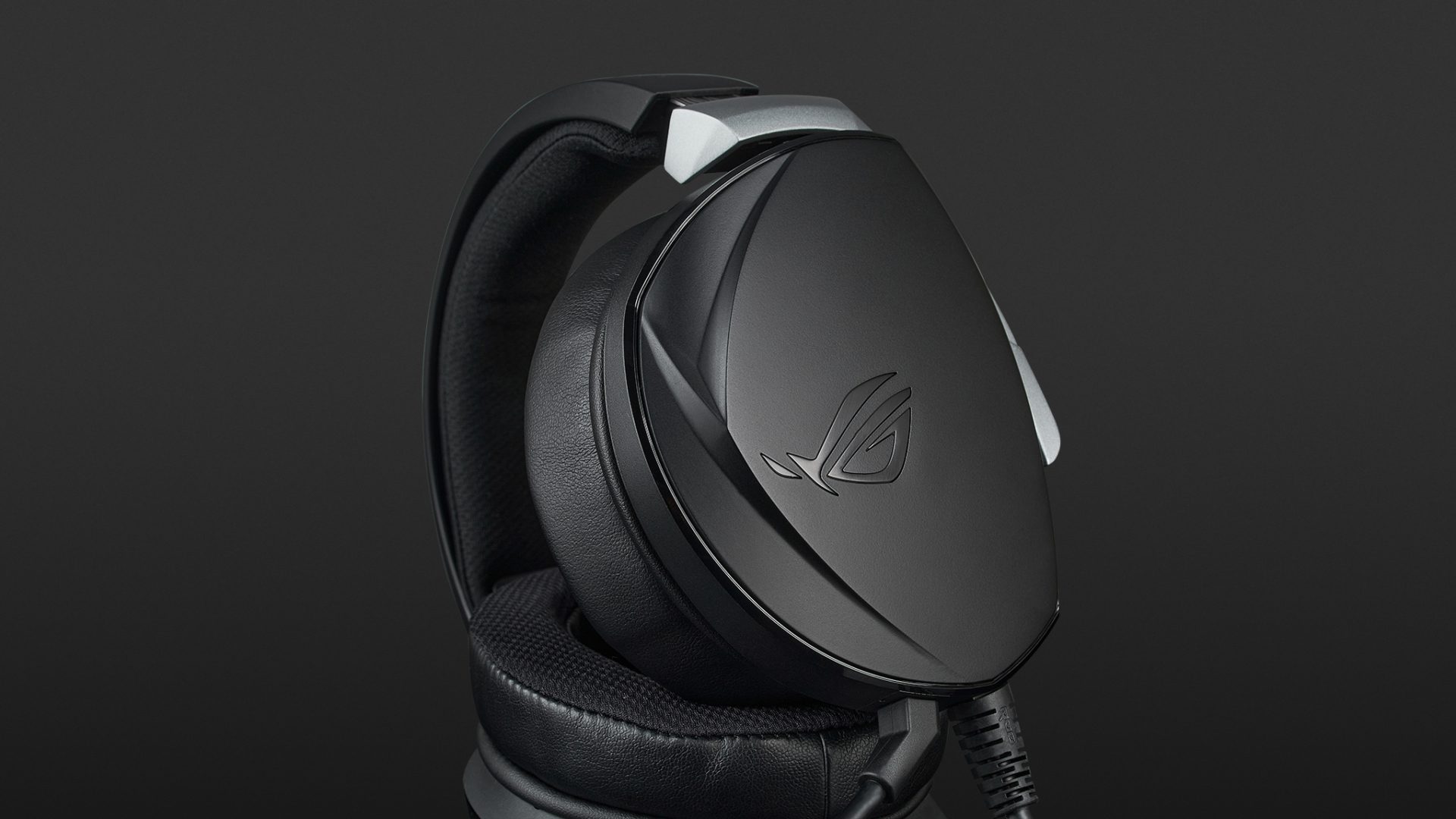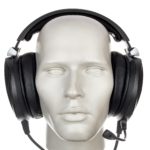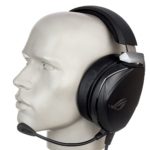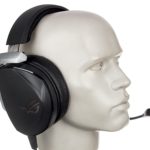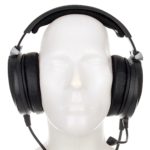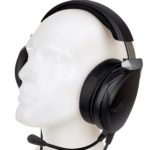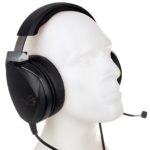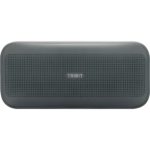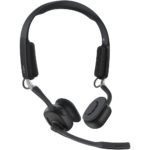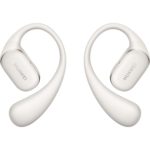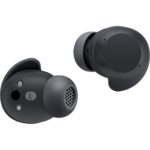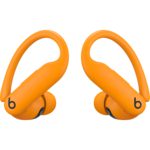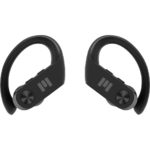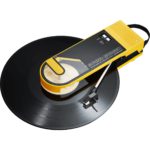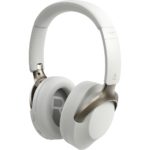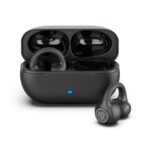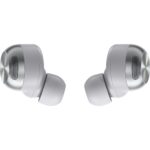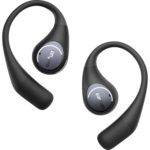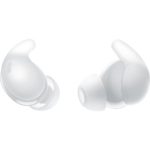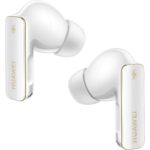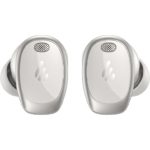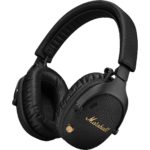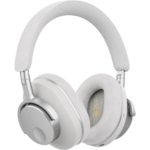The Asus ROG Theta 7.1 is an impressive gaming headset, offering 7.1 surround sound with eight drivers and four amps that can reproduce sound events precisely and clearly. On the other hand, there are deductions of points for the microphone quality and the cable management. If this is not so important to you, the Theta 7.1 is a sound specialist worth listening to.
The Republic of Gamers, or ROG for short from Asus, don’t want to make a fuss with the Theta 7.1, they want to make a big statement – the appearance of this powerful headset makes this impressively clear from the very first moment. Four drivers on each side of the earpiece, an integrated 7.1 DAC, a Hi-Res Audio certification and an AI-controlled microphone aim to conjure up a sound experience never before experienced in our ears. But have we finally found the Holy Grail of gaming headsets?

Design and finish
Like its stereo counterpart, the Asus ROG Theta Electret, the Theta 7.1. is anything but small and unobtrusive. The large ear cups made of a matt black aluminium alloy hang from aluminium joints, which in turn are screwed to the extendable rail for size adjustment. This metal, plastic-reinforced rail is embedded in the headband and offers an adjustment range of approx. 3.5 centimetres per side – subdivided into eleven grid points, which also engage snugly here and do not adjust easily. The top of the headband is made of plastic, underneath which the memory foam-filled mesh headband is attached with plastic pins. This can be removed for cleaning. Experience has shown that the headband is not removed very often, but care should be taken when removing and attaching it.
The manufacturer’s logo is embedded in the mighty ear cups, and this can light up, flash and pulsate in over 16.8 million colours thanks to Aura RGB Lightning. In addition, the ear cups can be folded down if necessary. On the left side, we find the mini-jack for the plug-in microphone as well as a multifunction rocker that changes the volume, mutes the microphone and switches off the RGB lighting. Above this is a small button labelled “PC/NB” and “Phone” that switches between 7.1. surround sound and stereo operation.
Fixed to the two cups is the 1.5-metre cable, which comes together after about 25 centimetres and finally ends in a USB-C socket. The cable is divided into two parts: The upper part is rubberised, the lower part has a textile sheath. However, since it is permanently attached to the headphones, the cable cannot be replaced if it breaks. However, due to its thickness, it appears very sturdy and leaves an impression of value.
And so one can attribute the Theta 7.1 with good to very good workmanship: There are no gaps, and only the transition between the ear cup suspension and the bracket and the volume wheel seems a little weak to us.
Comfort
The weight of approx. 600 grams can be felt on the head, but thanks to the tight contact pressure and the soft headband, we were able to wear the headset for several hours without any problems – however, in the long run, it would really be too heavy for whole weekends of gaming. The hybrid earpads with a protein leather edge and breathable fabric top have an inner diameter of approx. 8×6 cm and are fortunately large enough to allow even large ears to be completely covered. Sweating is kept within limits, as the ventilation slots on the top and bottom of the ear cups also contribute to air circulation. If that’s not enough, you can replace the pads with another pair included in the package. According to the manufacturer, these are better suited for “marathon sessions” thanks to their better cooling performance compared to the standard pads, as they use a special textile fabric that has a fast cooling effect.
A disadvantage for us was the two cables that are attached to the ear pods. They are quite stiff and thick, so they tend to press against the neck and get in the way, especially when you move.
Connection needed
The Asus ROG Theta 7.1 only has one USB-C port. However, since USB-C is (still) scarce on gaming consoles, the manufacturer includes an adapter cable from USB-C (female) to USB-A so that these can also be addressed. But: While the cable plus extension comes to a total length of about 2.4 metres, which should be plenty for PC gamers, console fans might come up short.
ROG Armoury Crate
To enable detailed adjustment of the ROG Theta 7.1, Asus offers the free “ROG Armoury Crate” software for Windows. In addition to pre-sets for music, including genre-dependent pre-sets, films and games, you can also adjust with a 10-band graphic EQ. Bass booster, compressor, reverb effects – everything is there, everything is on board, even if we found that some of it was even necessary for our daily dose of “Theta 7.1” because it didn’t help us sonically. The microphone performance can also be adjusted here: AI noise cancellation, noise gate or true voice can be switched through, although we didn’t manage to get any better mic sound out of it.
Since the headset has Hi-Res Audio certification, the bit rate, as well as the sampling rate, can be changed accordingly from 16 bit/44.1 kHz to 24 bit/96kHz.
There is, of course, much more to this software, such as selecting and adjusting the RGB effects, including Aura Sync, which makes Aura-compatible hardware glow together. If that’s not enough, simply use the free Aura Creator software to create your own glow sets.
Microphone
The included 15-centimetre gooseneck microphone (Discord and TeamSpeak certified), docks to the left cup via mini-jack, can be positioned relatively precisely and has a frequency response of 100 Hz to 12 kHz as well as a unidirectional polar pattern (cardioid). The AI-controlled noise cancellation is exciting; according to the manufacturer, it has been “trained” with over 50 million types of background noise in order to cleanly distinguish between a useful sound and disturbances such as keyboard noise, mouse clicks or chatter. Furthermore, the overtones of one’s own voice are preserved at the same time so that “crystal-clear voice communication is always maintained in the game”. In practice, this means that keyboard strokes and mouse clicks actually fade into the background, but do not disappear completely. Unfortunately, the microphone’s overall performance is not the greatest, because we repeatedly had to struggle with volume jumps and distortions. A pity, because in stark contrast to this is…
The sound
The sound is really important here! And that is in the truest sense of the word because ROG installs four neodymium magnet drivers per side – called “Essence” by Asus. The front driver has a size of 40 millimetres, while the remaining three, which are responsible for the mid, side and rear signals, have a diameter of 30 millimetres. ROG also has a virtual bass driver up its sleeve. However, this lags behind the four Essence drivers, so that the low frequencies are not reproduced as distinctly as the mids and highs.
The bass – rather slim in nature – sounds honest, precise and reaches down low so that the tonality of bass drums and instruments is always clearly revealed. Only at about 75% volume did it start to build up pressure and thrust in our test model.
It’s nice that the bass range does not radiate into the mids so that voices and lead instruments are reproduced with presence and detail. Perhaps one could even speak of a slight tendency to overemphasise, but particularly in combination with the detail resolution of the treble, the Theta 7.1 do not swallow themselves up even in complex mixes.
To our ears, the Theta 7.1 have almost audiophile qualities, as details are brought out very nicely especially for a gaming headset, with clarity dominating the entire frequency range.
The spatial impression is correspondingly pronounced: For a pair of closed headphones, the panorama is wide and extremely precise – not only perfect conditions for determining the position of opponents but also great when watching films and listening to music, we suddenly heard the finest details that are simply lost with many other headphones: A soft crackling of a branch here or the resonance of a string there, in places the Theta 7.1 works like an acoustic magnifying glass.
But it’s no wonder because unlike many of its competitors, there is not just one amplifier feeding the drivers, but four of the Sabre ESS 9601 type from ESS Technology.
We rated the surround sound effect when playing games and watching films as far more pronounced than with headsets that only have one driver each and virtually convert the multi-channel sound accordingly. The Theta 7.1. was far better at creating a three-dimensional space in our heads. The comparison with a real surround field, based on eight speakers, was nevertheless flawed because differences in time of flight between the left and right ear, as well as reflections from the walls, cannot be realised even by a Theta 7.1.
Technical specifications
- Ear couplingOver-ear
- Typeclosed
- Transducer principledynamic
- Frequency response (headphones)20 - 40.000 Hz
- Impedance32 ohms
- Weight with cable590 g
- Cable length150 cm
What's in the box
- Replacement ear pads
- USB-C adapter cable
Special features
- Compatibility: PC, Mac, PlayStation 4, PlayStation 5, Nintendo Switch








